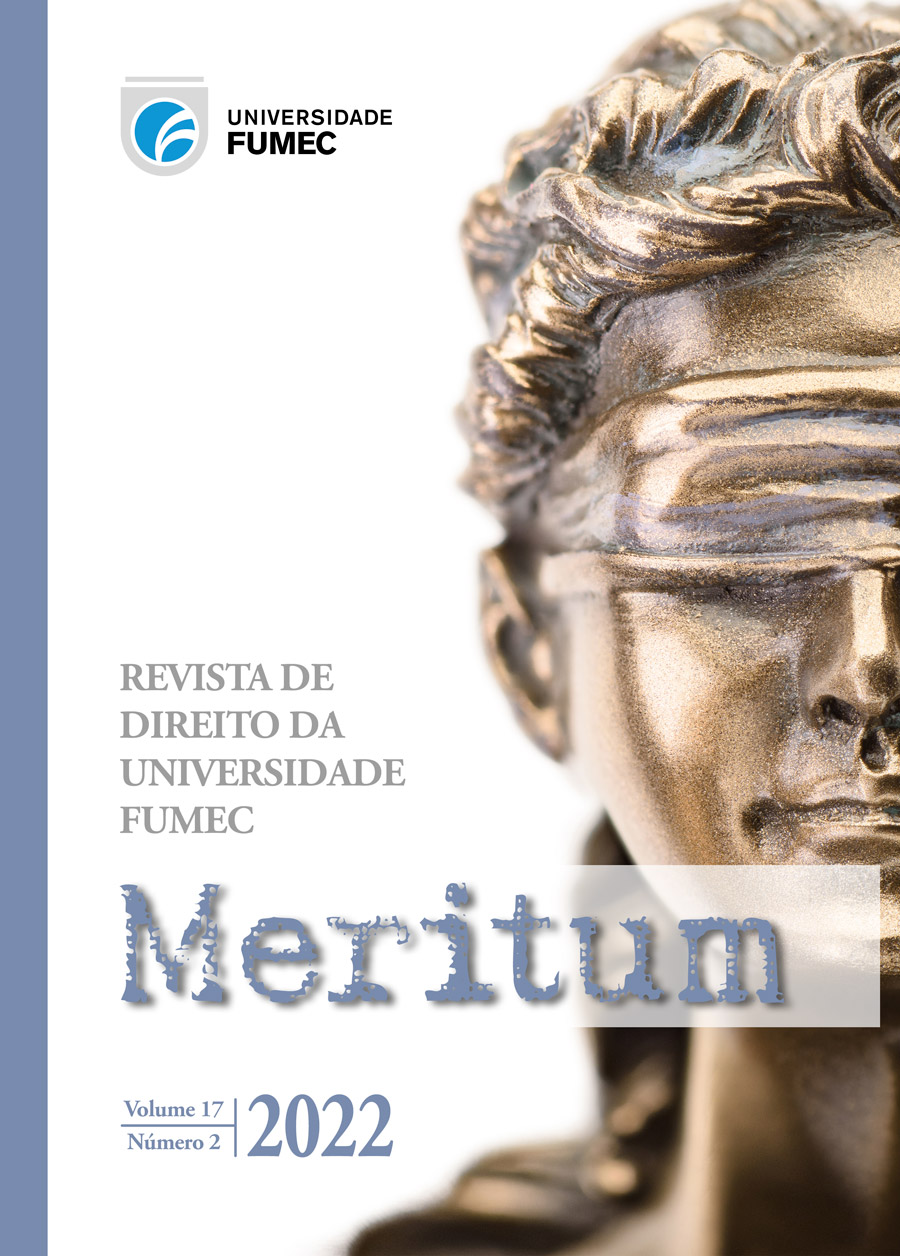A LAND REGULARIZATION AS A WAY OF EMBRACING THE FUNDAMENTAL RIGHT TO HOUSING UNDER THE SOLIDARITY PARADIGM
ESSAY ON THE SOCIAL FUNCTION OF THE PROPERTY REGISTER
DOI:
https://doi.org/10.46560/meritum.v17i2.8237Abstract
Solidarity is an old theme, however, in the legal sphere, as a paradigm, it is a good topic. The right to housing is a fundamental right enshrined in the Brazilian Federal Constitution, as is the right to property. Several studies show that access to property is also a way of achieving human dignity and promoting social inclusion. Thus, seeks to answer the following problem: Is there a social role played by the Property Register, in the urban land regularization procedure for the purpose of realizing the fundamental right to housing? In order to answer the proposed questioning, the hypothetical-deductive method is used, aiming at two hypotheses: one hypothesis, confirming the existence of the Register's social function and another hypothesis, refuting this function in the course of the urban land regularization process. It is the land regularization of an institute that allows access to the property of the immovable property and, consequently, to the housing itself. The Property Register plays an important role in this scenario, when conducting the land regularization process, under the terms of Federal Law 13.465/2017. It is concluded that the Real Estate Register performs, among several other attributions defined in Federal Law 8.935/94, a relevant role for the effectiveness of land regularization of consolidated and informal irregular occupations, exercising a true social function.
Downloads
Published
Issue
Section
License
Autores que publicam nesta revista concordam com os seguintes termos:
- Autores mantém os direitos autorais e concedem à revista o direito de primeira publicação, com o trabalho simultaneamente licenciado sob a Licença Creative Commons Attribution que permite o compartilhamento do trabalho com reconhecimento da autoria e publicação inicial nesta revista;
- Autores têm autorização para assumir contratos adicionais separadamente, para distribuição não-exclusiva da versão do trabalho publicada nesta revista (ex.: publicar em repositório institucional ou como capítulo de livro), com reconhecimento de autoria e publicação inicial nesta revista;
- Autores têm permissão e são estimulados a publicar e distribuir seu trabalho online (ex.: em repositórios institucionais ou na sua página pessoal) a qualquer ponto antes ou durante o processo editorial, já que isso pode gerar alterações produtivas, bem como aumentar o impacto e a citação do trabalho publicado (Veja O Efeito do Acesso Livre).






